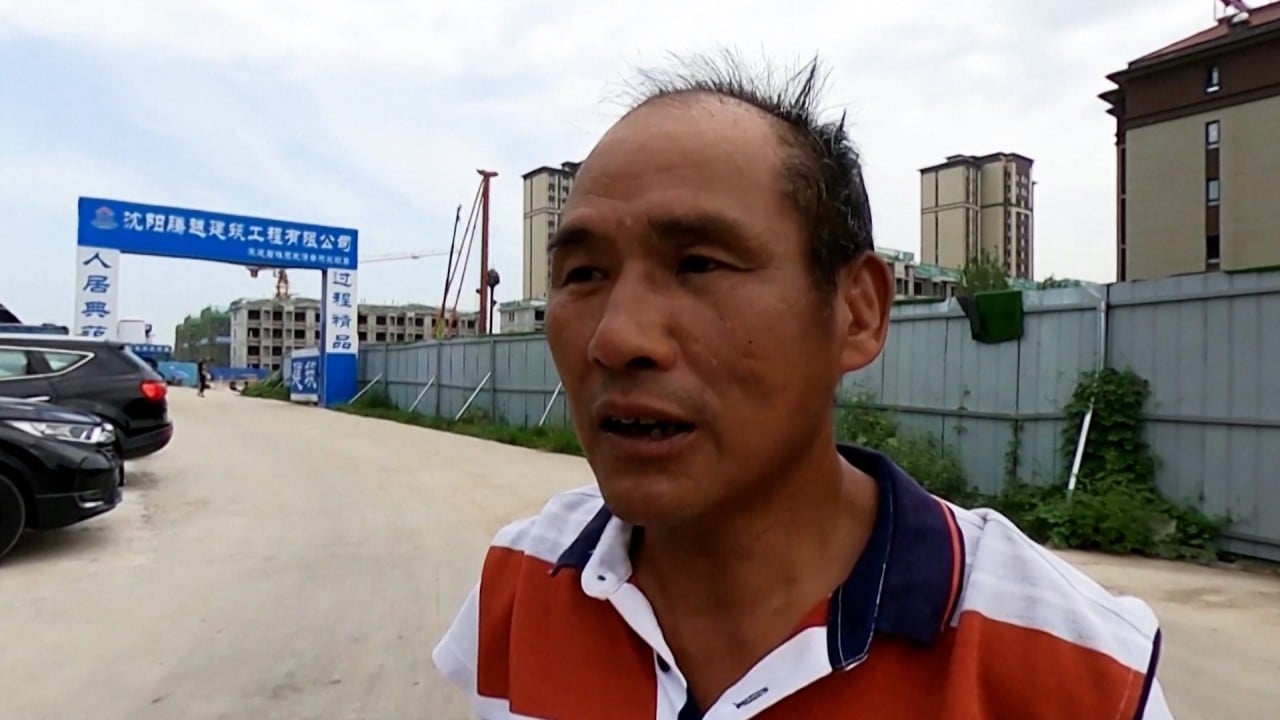
China property: new stimulus is on the way as Politburo pledges to cut housing inventory, say analysts
- ‘We believe the policy stance of the Politburo has turned … more supportive to the property sector,’ says Nomura
- However, some observers worried the much-needed support might be too little too late
China property shares continued to rally on Thursday as industry leaders China Vanke and Shimao jumped as much as 14.7 per cent and 11.1 per cent respectively in intraday trading.
The Hang Seng Mainland Properties Index, a gauge tracking 10 home builders listed in Hong Kong, advanced 4.5 per cent to 1,430.88 at the Thursday close, the highest so far this year.
“This is a quick, positive policy change, in our view, and we think that policy banks should provide funds to local governments to achieve inventory reduction goals, as was successfully done in China in 2014-2019,” said Raymond Cheng, managing director of CGS International Securities Hong Kong.
He was referring to a strategy that provides the funds for local governments and their platforms to purchase unsold units from developers and use deploy them as social housing.
“It would be a ‘win-win’ for both government and developers if that really happens,” he added. “The move, if implemented, will not only rapidly reduce inventory levels, but improve developers’ liquidity.”
Japanese investment bank Nomura was cautiously optimistic about the supportive messages that came from Tuesday’s meeting.
“We believe the policy stance of the Politburo has turned marginally more supportive to the property sector, given its increased emphasis on resolving the abundant housing inventory issue,” analysts led by Dong Jizhou said in a report on Wednesday.
Chinese developer Redsun faces winding-up petition as creditors turn hostile
In the latest signal of the government’s eagerness to kick-start demand in the residential property sector, Beijing ended a curb on multiple home purchases in the city’s noncore areas earlier in the week. Other cities, like Zhengzhou, introduced measures in April to encourage home replacements as a way to digest inventories.
More cities, especially tier-1 metropolises like Shanghai and Shenzhen, are expected to join the ranks of those introducing more policy easing measures in the next few weeks, Nomura said in its report.
“However, we are concerned that the magnitude and timing of these measures could come in weaker or later than expected,” it said.
Raymond Yeung, chief economist for ANZ Research’s Greater China region, said the call for reducing unsold stock is “a very positive message”, but it needs time and follow-up action to ensure it has an impact.
In a March report he estimated that China’s unsold residential property had surpassed 3 billion square metres at the end of 2023 and would take 3.6 years to be digested, much longer than the 2.3 years estimated in 2014.
Moreover, Goldman Sachs said in an April report that the government may need to spend more than 15 trillion yuan (US$2.1 trillion) to fix the problems plaguing the sector, including 7.7 trillion yuan to trim the inventory of unsold homes to levels last seen in 2018.
The excess inventory has been building up since mid-2021 and has remained higher than the previous peak in 2015, according to the Goldman report.
“The full resolution of a severe property downturn is usually costly and takes many years,” the US bank warned.
Nationwide, new home sales in April generated by the top 100 Chinese developers fell 44.9 per cent year on the year to 312.2 billion yuan, and by 12.9 per cent compared with the previous month, according to China Real Estate Information Corporation.


